Question And Answer
Publications
Articles, publications, books, tools and multimedia features from the U.S. Institute of Peace provide the latest news, analysis, research findings, practitioner guides and reports, all related to the conflict zones and issues that are at the center of the Institute’s work to prevent and reduce violent conflict.

Mike Yaffe on Iraq and Syria Event
Following USIP’s event “Iraq and Syria: Views from the U.S. Administration, Military Leaders and the Region,” Mike Yaffe provides key takeaways from the panel featuring CENTCOM Commander General Votel, USAID Administrator Green, and Special Presidential Envoy for the Global Coalition to Defeat ISIS McGurk. "Iraq and Syria are complex and starkly different from one another," says Yaffe, "but the key goals are the same: concentrate on defeating ISIS and work by, with, and through local people to stabilize each country."
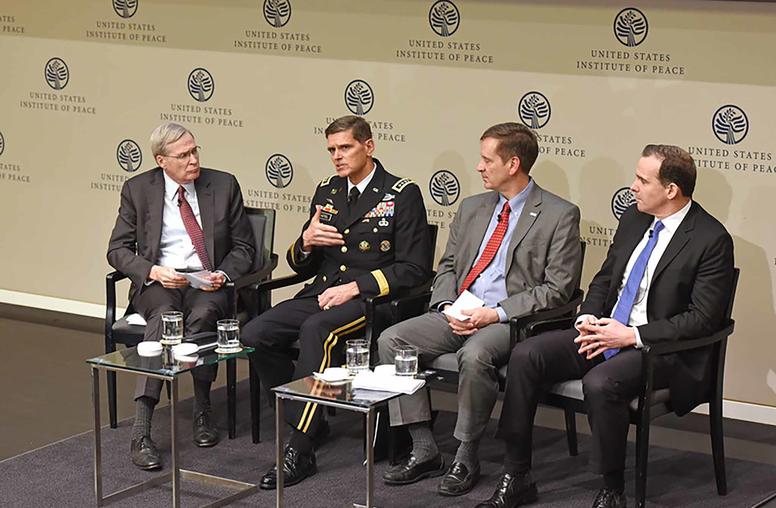
Tilting Iraq and Syria Toward Stability—and Away From ISIS
With last year’s military rollback of the ISIS-declared caliphate, U.S. security and Middle Eastern stability require some way to establish governance in Iraq and Syria that meets the needs of their peoples, according to U.S. administration and military leaders, Iraqi officials and regional experts speaking on April 3 at USIP. During a day-long examination of strategy to stabilize the region and prevent a revival of ISIS, U.S. special presidential envoy Brett McGurk said President Trump’s March 30 order to freeze spending on post-combat recovery efforts in Syria “is not hampering our work in the field.”
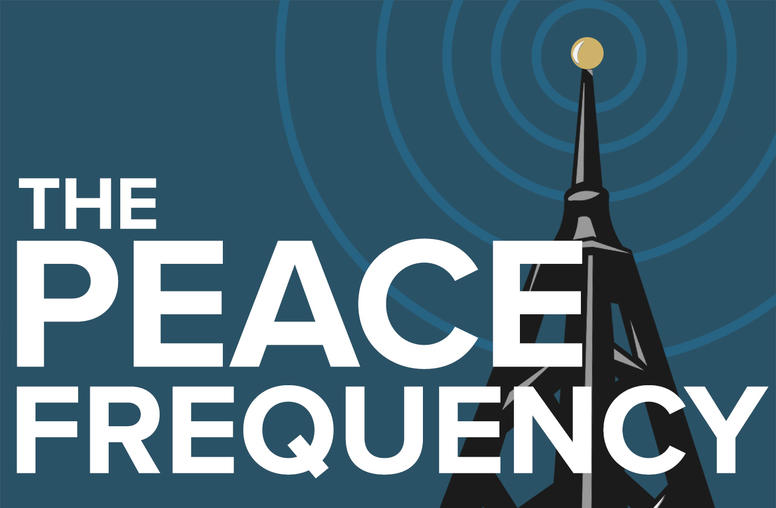
Episode 51 - Meshack Simati
Our guest on this episode is USIP Peace Scholar, Meshack Simati, a Ph.D. candidate in political science at Georgia State University. His dissertation is titled, “The False Promise of the Judiciary in Reducing Election Violence among African Countries.” Together we explore the history of election violence in Kenya and other countries around the world. What is election violence? How does it impact the voting process and the outcome? What are the implication for the future? How do we prevent it?
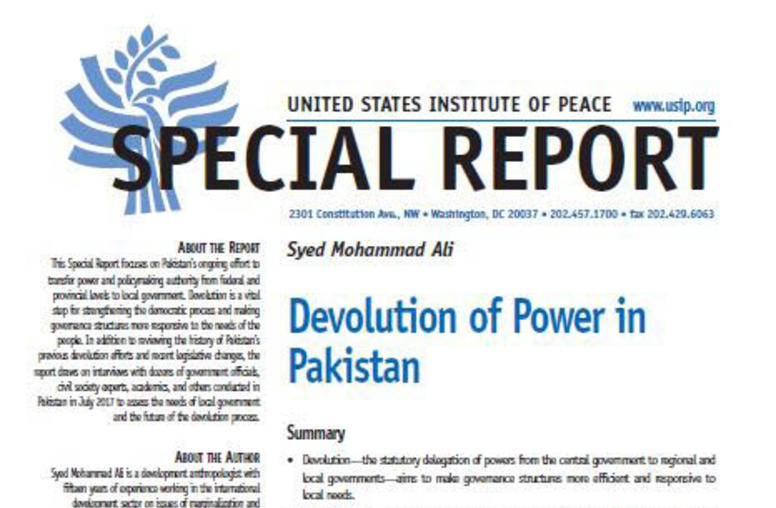
Devolution of Power in Pakistan
Passage of the eighteenth amendment to Pakistan’s constitution in 2010 was rightly hailed as a major accomplishment. Not only did it devolve significant powers from the central government to the provinces, it also mandated the formation of local governments to bring government closer to the people. It took half a decade for the provinces to set up local governments—and real decision-making authority and financial resources have been even slower to arrive. In this Special Report, Syed Mohammad Ali takes stock of Pakistan’s devolution process and why its success is critical to the long-term prospects of democracy and the cultivation of new generations of democratic leaders.
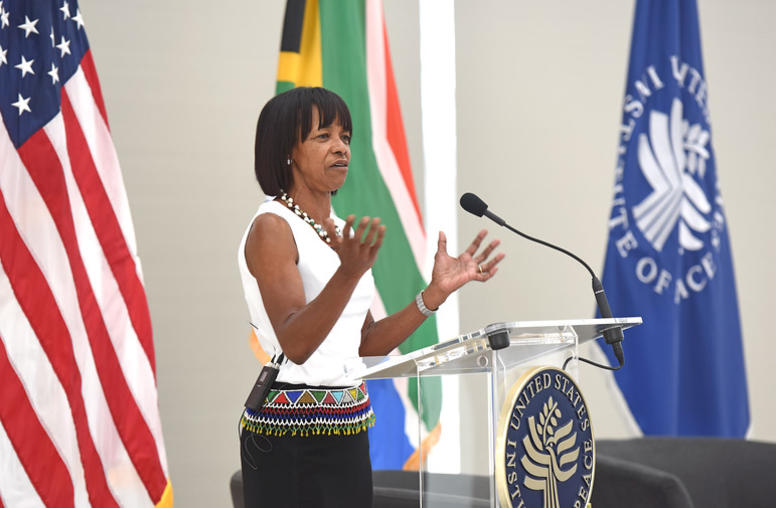
At 100, Nelson Mandela's Meaning for 'A Troubled World'
One hundred years after Nelson Mandela’s birth, his example calls nations and political elites to examine their failings in providing justice and hope to people worldwide, said Cheryl Carolus, Mandela’s colleague in the movement that toppled South Africa’s apartheid regime. Amid warfare across the globe, and alienated voters roiling the politics of democracies, “maybe it is fortuitous that we are confronted with these challenges in the centenary year of Nelson Mandela,” Carolus said, delivering USIP’s inaugural Nelson Mandela Lecture. “Maybe we will remind ourselves that peace can only reign and endure if there is justice and equality.”

Nancy Lindborg on the State of Play in Iraq
Just days after returning from Iraq, Nancy Lindborg shares her impression of the improved landscape in Iraq after ISIS’ brutal occupation. Lindborg describes the unifying sense of Iraqi pride following ISIS’s ouster, but she cautions that if the government fails to become more inclusive and accountable, Iraq could fall back into a highly sectarian environment.
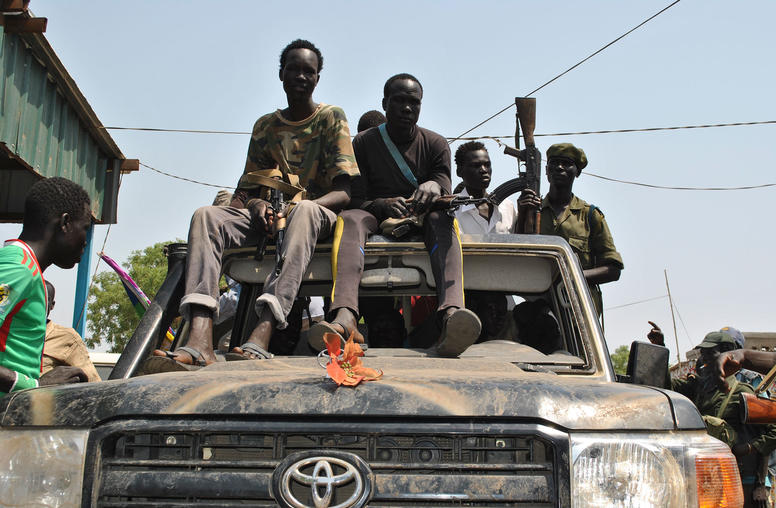
South Sudan’s Pitfalls of Power Sharing
This week, a new proposal for a power sharing government was tabled at the ongoing Intergovernmental Authority on Development (IGAD) High Level Revitalization Forum (HLRF) peace talks for South Sudan. An earlier, 2015 peace deal also contained a formula for power sharing; that arrangement failed and the civil war re-ignited a year later. Power sharing arrangements are appropriate if certain conditions are met, but not enough has been done to ensure the latest proposal will overcome the obstacles present in South Sudan, according to Susan Stigant, USIP’s director for Africa programs and Aly Verjee, a visiting expert at USIP and a former senior advisor to the IGAD mediation, who comment on the proposal and suggest how it could be improved.
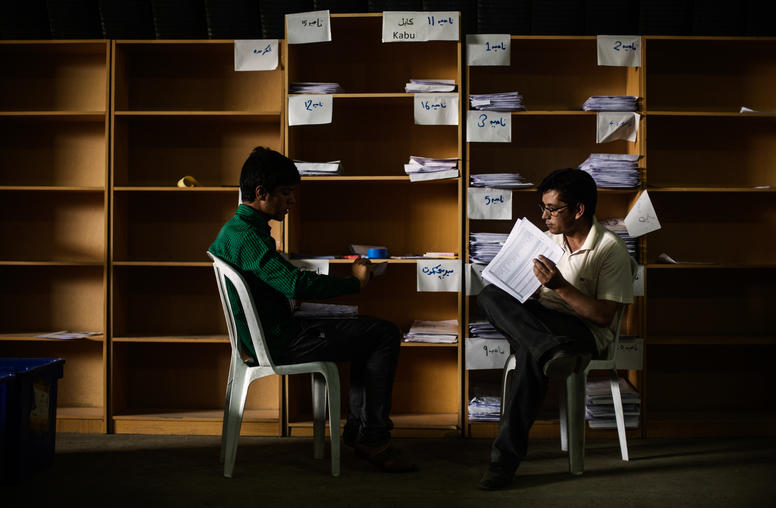
Afghan Elections: Will the Voter Registry Be Ready for 2018?
Fixing Afghanistan’s voter registry—something all political actors engaged with the country agree is broken—has been a key priority since the seriously flawed election of 2014. With parliamentary balloting scheduled for July, revamping the system of registering voters is becoming increasingly urgent, as recognized by...
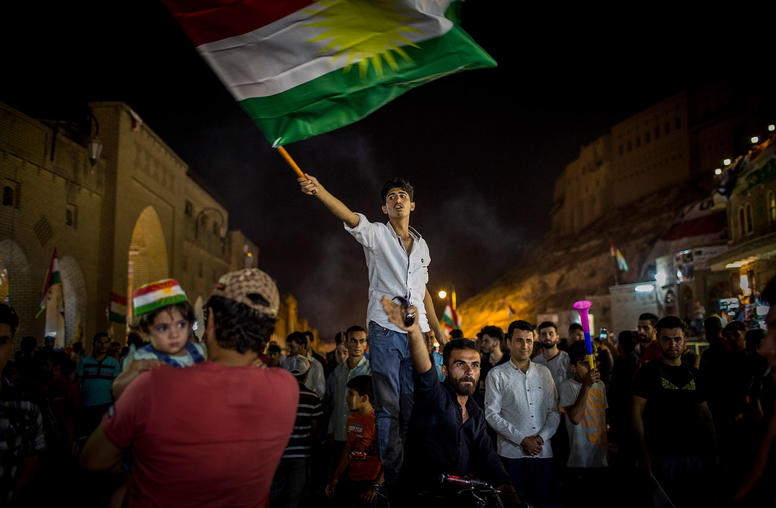
Iraq’s Impasse with Kurds Puts Post-ISIS Stabilization at Risk
The impasse between Iraq’s central government and its Kurdistan Region is building into an economic problem, and both sides need to quickly find a way to negotiate a solution. While political conflict between the authorities in Baghdad and the regional capital of Erbil has been quieter since Iraqi troops ousted Kurdish forces from disputed territories in October, the Kurdish region’s economy is unraveling, with risks for both sides.

Ambassador Bill Taylor remembers the Arab Spring
Ambassador Bill Taylor reflects on the significance of the Arab Spring and the changes brought about by the movement, including the democratic transition in Tunisia, the major political changes in Egypt and the role of the United States in these type of events.